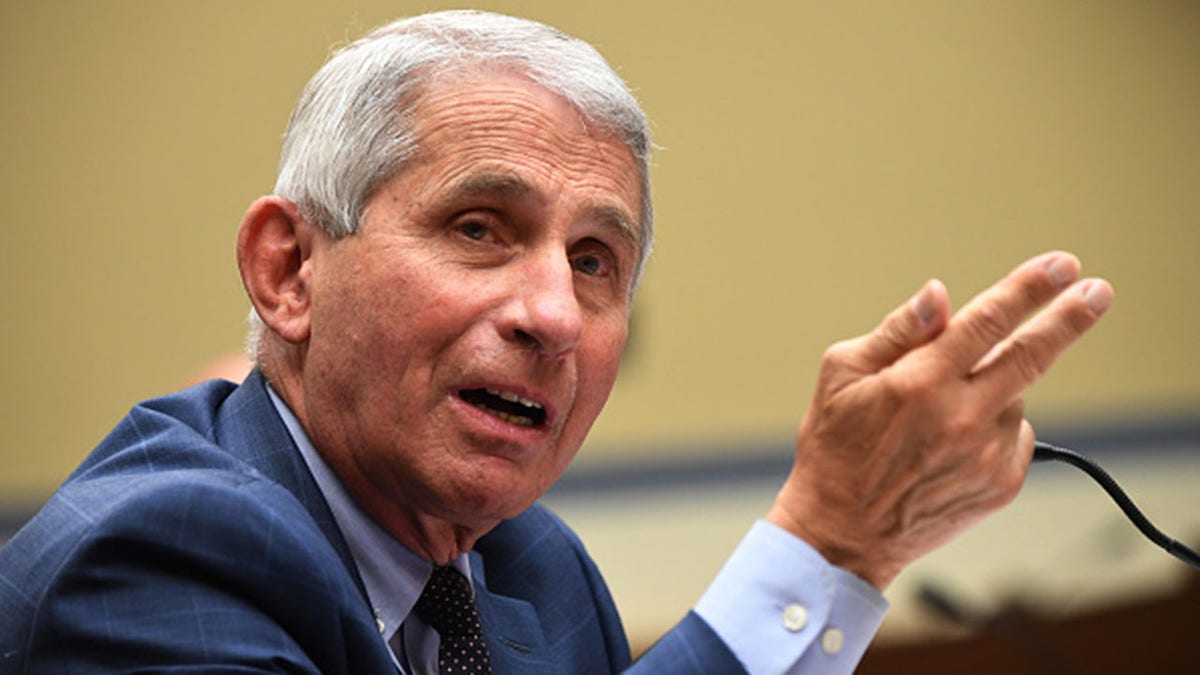While New Jersey was hit hard in the beginning of the coronavirus pandemic, the state is now well-positioned for the colder months ahead given its low baseline of community spread, per comments from Dr. Anthony Fauci, head of the National Institute of Allergy and Infectious Diseases (NIAID).
“The good news and the thing that makes me very pleased and encouraged about New Jersey is that, notwithstanding that you got hit pretty badly, right now if you continue to carefully and prudently open the economy, you can get through the fall and winter,” Fauci told Gov. Phil Murphy on Thursday streamed over Facebook Live.
New Jersey reopened indoor dining earlier this month at 25% capacity and social distancing between tables. It had been postponed due to lack of compliance of face masks and social distancing.
Fauci said New Jersey successfully followed preventative measures, which resulted in its low percent positivity, less than 3%. He added that the nationwide baseline is still around 35,000 to 45,000 cases each day; since early June, New Jersey has consistently flattened the curve with new daily reported cases in recent weeks toggling between 300 and 600.
"Your baseline is so low that you are going to be at an advantage so that when inevitable cases occur, and they will...you are starting off at a good point," Fauci said.
Murphy said Fauci's comments were "extremely helpful and extremely encouraging," especially as officials deal with the challenge of fatigue over the virus and precautionary measures.
NEW JERSEY SHOOTING: 1 KILLED, ANOTHER 'SEVERELY INJURED' AT NJ MOTORCYCLE CLUBHOUSE

Fauci said New Jersey successfully followed preventative measures which resulted in its low percent positivity, less than 3%. Fauci is pictured here before a House Subcommittee on the Coronavirus Crisis hearing on July 31, 2020 in Washington, DC. Trump administration officials are set to defend the federal government's response to the coronavirus crisis at the hearing hosted by a House panel calling for a national plan to contain the virus. (Photo by Kevin Dietsch-Pool/Getty Images)
FAUCI CLASHES WITH RAND PAUL AGAIN AT CORONAVIRUS HEARING: 'YOU ARE NOT LISTENING'
Murphy has previously criticized “knucklehead behavior” by unmasked partiers gathering at homes, and on Thursday echoed the sentiments, saying that people continually gathering and flouting preventative measures has been a challenge.
The governor brought up a "myth" that the eventual coronavirus vaccine will bring a “bright line; a Nirvana.”
“You better get that red line and erase it,” Fauci said, adding that the belief stems from an assumption that the vaccine is 100% protective and 100% of people will take the vaccine. “That’s not going to happen,” Fauci said, adding that a certain percentage of the population needs some convincing to take the eventual vaccine while hoping for at least 75% to 80% of the population will get vaccinated by the end of 2021.
The vaccine "will allow us to more quickly and with less stringency get back to some degree of normal but it is not going to eliminate the need to be prudent and careful with our public health measures,” Fauci said, upholding previous comments that results from coronavirus vaccine trials are expected in November or December, and an "unlikely but conceivable" chance it could happen earlier. He elaborated on the process for approving a potential vaccine, which includes a data and safety monitoring board, or "independent group" of scientists, statisticians and other experts "not beholden" to the Food and Drug Administration, President Trump or himself. He said the data from a given trial becomes public after review by the independent board, then the FDA and its commissioner and another independent body and advisory group, VRBPAC.
Later on in the discussion, Murphy asked Fauci to address aerosol transmission, which made headlines earlier this week after the CDC posted a “draft version” of guidance on aerosol transmission in error and later deleted it.
Fauci said he believes aerosol transmission does occur, which happens when smaller particles emitted from an infected person linger in the air and are potentially inhaled by someone else, leading to infection, especially in indoor places with poor ventilation.
Nevertheless, Fauci said guidance on preventative measures remains the same regardless of the likelihood of aerosol transmissions, such as wearing of masks.
Finally, Murphy sought advice on school reopenings, noting that the state’s hundreds of districts are offering hybrid and remote plans until a certain date, with a few offering in-person learning.
Fauci strongly advocated for in-person learning, adding that the “easiest way to safely get children back to school” is for communities in “red and yellow zones,” or areas with a high incidence of virus transmission, to follow preventative measures and do everything possible to revert the zone into “green.”




















